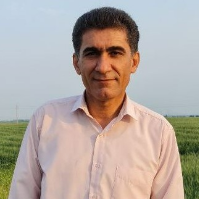A qualitative study of youth use of social media, a grounded theory
Virtual social networks are the space for the gathering of billions of Internet users who call and exchange information regardless of frontiers, languages, sex, culture, etc. Each of them has a particular understanding of social networks that are unique to their own. But this understanding and their experiences are grounded in an interpersonal space. The present study used interpretivism paradigm and grounded theory to examine the meanings, perceptions, understanding and experience of Yazd youth in social networks. The target population was university professors, media experts, counseling specialists and youth in Yazd, a sample of them selected based on purposeful and theoretical sampling. The data were collected with non-structured interviews and participatory observation and field notes technique from 32 participants. The research findings included a final core category (Reflexive duality), 11 main categories, 37 sub categories and 94 concepts. The results of the research indicate that the security, trust and yazdian culture are problematic in cyberspace. Thus, research participants reflexively think about cyberspace continuously and with this reason they confront reflexive duality that simultaneously make their existence or absence meaningful.
-
Organizational Factors Affecting the Emergence of Compassionate Care from the Perspective of Nurses in the COVID-19 Wards of Hospitals in Yazd City: A Qualitative Study
Ghasem Fattahi Ardakan, Saeed Vaziri Yazdi*, , Yaser Rezapour
Journal of Nursing Education, -
Understanding the Mindset of Protesting Women Regarding the Causes and Consequences of Protest Actions: A Qualitative Study of Imprisoned Female Protesters in Yazd
Ali Nikmanesh, Ali Ruhani *, , Ahmad Kalateh Sadati
Strategic Research on Social Problems in Iran,


